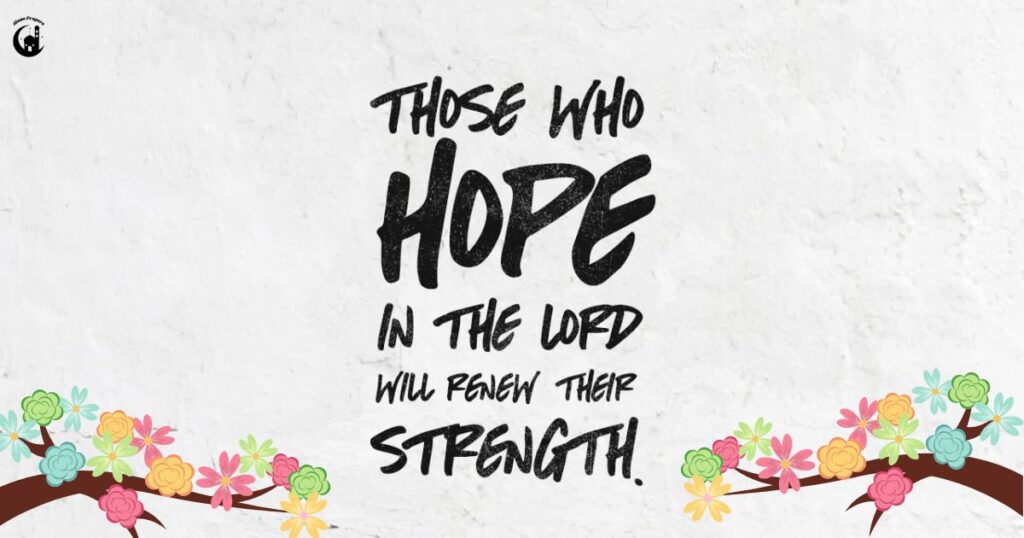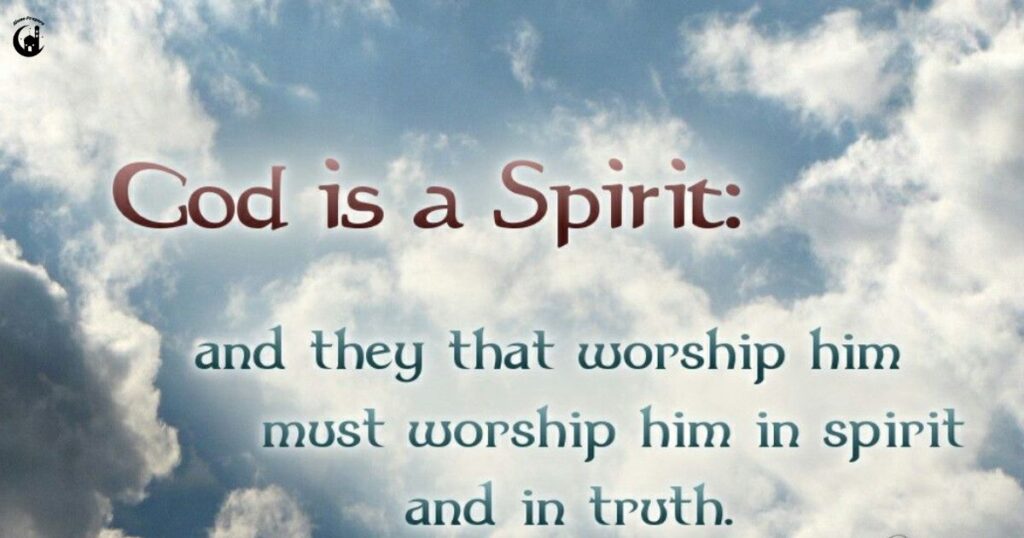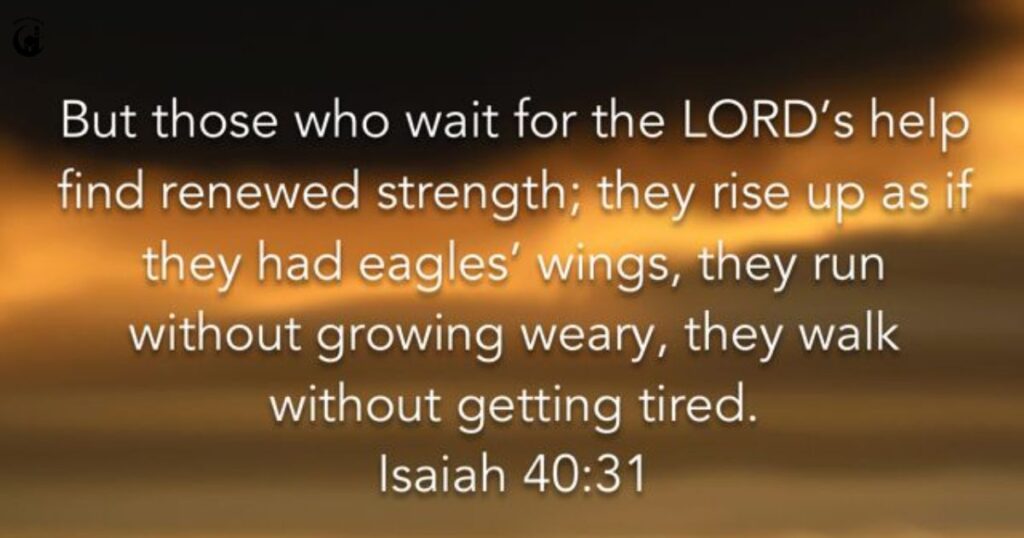Are you tired? Not just physically exhausted but spiritually drained? You are not alone in this struggle. Across the globe, believers are running on empty. Pandemic fatigue has morphed into something deeper, a soul-weariness that won’t quit. The statistics tell a sobering story: 25% of people now battle anxiety, while 17% wrestle with depression. But these numbers represent real lives, real struggles, real tired Christians who wonder if they can keep going.
Isaiah 40:27-31 speaks directly into this exhaustion. Written to God’s people during their darkest hour of exile in Babylon, these verses chart a path from despair to renewal. This isn’t just ancient history. It’s a road map for anyone who’s ever felt abandoned, forgotten, or too weary to take another step. Today, we will walk through three trans-formative phases that lead from exhaustion to hope.
Understanding the Context of Isaiah 40:27-31

Isaiah 40 wasn’t written for comfortable believers in peaceful times. These words targeted a devastated community far from home.
Picture Jerusalem destroyed. The temple was reduced to rubble. God’s chosen people dragged hundreds of miles to Babylon as captives. Everything they’d known gone. Every promise seemingly broken.
Isaiah 40 offered these broken people something revolutionary a vision of God so magnificent that it could re-frame everything. The first 26 verses paint an unparalleled picture of divine majesty and power. But verses 27-31 get personal. They address the specific exhaustion that threatens to swallow God’s people whole.
Phase One: Our Despair (40:27)
The journey toward hope begins with brutal honesty. Verse 27 doesn’t sugarcoat the struggle:
“Why do you say, O Jacob, and speak, O Israel, ‘My way is hidden from the LORD, and my right is disregarded by my God’?”
Notice God does not rebuke them for these feelings. He acknowledges them. God’s people felt invisible, forgotten, disregarded. And they were not shy about saying so.
That phrase “you say” and “speak” indicates repetition. This wasn’t a one-time doubt. It became their constant refrain. Day after day, they vocalized their sense of abandonment.
Have you been there? Looking at circumstances that scream God does not care? When prayers seem to bounce off the ceiling? When Scripture promises feel hollow against crushing reality?
The biblical text gives us permission for this honesty. Psalms overflow with raw emotion. David cried out, “How long, O LORD? Will you forget me forever?” Job questioned God’s justice. Even Jesus asked, “Why have you forsaken me?”
There’s a difference between honest doubts and defiant rebellion. Doubts acknowledge struggle while seeking God. Rebellion accuses him and turns away.
Philip Yancey captures this beautifully: “Throw at him your grief, your anger, your doubt, your bitterness, your betrayal, your disappointment he can absorb them all.”
God doesn’t need us to pretend everything is fine. He invites us to bring our exhaustion, our questions, our desperation. That’s what faith looks like when you’re running on fumes.
Even in acknowledging their despair, God reminds them who they are. He calls them “Jacob” and “Israel.” Jacob wrestled with God and received a blessing. Israel means “he struggles with God.” Their very identity includes struggling and being loved through it.
You are not abandoned by God when you wrestle. You are in good company.
Phase Two: God’s Greatness (40:28)

After acknowledging despair, Isaiah 40 pivots dramatically. Verse 28 contains medicine for weary souls:
“Have you not known? Have you not heard? The LORD is the everlasting God, the Creator of the ends of the earth. He does not faint or grow weary; his understanding is unsearchable.”
This moment in the Isaiah 40:31 sermon outline shifts everything. The questions aren’t accusatory. They’re remedial. God asks, “Remember what you already know?”
Tired Christians do not need brand-new information. We need to recall the truth we have forgotten under pressure. That’s why we gather weekly for worship and teaching not just for novelty but for repetition of essential realities.
What must we remember?
God Is Eternal
The “everlasting God” operates outside time’s constraints. While we’re stuck in this moment, drowning in present pressures, God surveys all history simultaneously. He’s already at your future, working things you can’t yet see.
Ray Ortlund explains it perfectly: “God is not confined to time. In his sweeping eternality God is equally present to all points of time at once. He is always out ahead of us.”
This means your crisis has a deadline but God does not. Your exhaustion feels endless, yet it’s temporary. God’s not panicking about your timeline. He’s working his purpose out at exactly the right pace.
God Is Creator
“Creator of the ends of the earth” is not a poetic exaggeration. It’s an operational fact. If God spoke galaxies into existence, your problem isn’t too big for him.
We forget this constantly. We treat God like he is barely managing, stretched thin, possibly overwhelmed by global events. But the one who created everything isn’t short on resources or power.
The Isaiah 40 meaning here cuts deep: the God who made you hasn’t lost control of what he created.
God Never Grows Weary
Here’s where it gets intensely personal for tired Christians. “He does not faint or grow weary.”
We spend a third of our lives asleep. We need coffee, vacations, and Sabbath rest. Our exhaustion is real and limiting.
God never experiences this. He’s “forever fresh, always alert, always able,” as Ortlund says. When you collapse in bed depleted, God remains fully operative. You can not pray another word, he’s still listening. When you have got nothing left, he’s still everything.
His understanding is “unsearchable” meaning there’s no bottom to his wisdom or limit to his insight. He sees what you can’t. He knows connections you’ll never grasp.
Tired Christians need to move from staring at problems to gazing at God’s greatness. That shift changes everything.
Phase Three: Our Renewal (40:29-31)

Now comes the climax. After despair meets God’s greatness, renewal becomes possible. Verses 29-31 deliver one of Scripture’s most powerful promises:
“He gives power to the faint, and to him who has no might he increases strength. Even youths shall faint and be weary, and young men shall fall exhausted; but they who wait for the LORD shall renew their strength; they shall mount up with wings like eagles; they shall run and not be weary; they shall walk and not faint.”
This Isaiah 40 29-31 passage deserves memorization. It’s the lifeline truth for anyone gasping for air.
Verse 29 starts with beautiful logic. God gives power to the exhausted. He increases strength for those with none left. This isn’t theoretical it is his specialty.
But verse 30 delivers a reality check. “Even youths shall faint and be weary, and young men shall fall exhausted.” Human strength at peak performance still fails. The strongest, healthiest, most energetic people hit walls they can’t climb.
We’re no match for life’s unrelenting demands. Our best efforts crumble eventually. That sounds discouraging until you read verse 31.
What Does “Wait for the LORD” Mean?
“They who wait for the LORD shall renew their strength.” Everything hinges on understanding “wait.”
This isn’t passive resignation. It’s not sitting around hoping something changes. Waiting for God means active, confident trust in his covenant promises.
It’s believing God will keep his word even when circumstances suggest otherwise. It is placing your faith in his character when evidence seems scarce. It’s trusting gospel promises before you see fulfillment.
For the exiles in Babylon, it meant trusting God would restore them despite zero indication he would. That’s faith choosing to believe God’s Word over visible reality.
The Isaiah 40:31 meaning becomes clear: renewal comes not from mustering more willpower but from placing our confidence in God’s unfailing nature.
The Promise of Renewed Strength
When we wait on the Lord this way, something supernatural happens. We “mount up with wings like eagles.” Eagles don’t achieve great heights through frantic flapping. They catch updrafts and soar with minimal effort.
That’s the picture. God’s strength lifts us. His power carries us. We rise not because we’re so capable but because he’s so mighty.
“They shall run and not be weary; they shall walk and not faint.” Both running and walking require energy. But God’s tireless strength overflows into our lives. We access resources beyond ourselves.
This isn’t positive thinking. It’s supernatural empowerment. The limitless God shares his inexhaustible power with tired Christians who stop trying to be self-sufficient.
Gospel Promises for Tired Christians
The ultimate fulfillment of these promises arrives through Jesus Christ. The gospel offers weary souls everything they need.
Come with empty hands of faith to Christ. Receive a new heart, a new future, adoption into God’s family. Second Peter 1:4 speaks of “his precious and very great promises” given through the gospel.
Tired Christians don’t need to earn renewal. We received it as a gift. That’s what makes it sustainable. Self-generated power depletes. God-given strength replenishes.
The Church’s Hope for Moving Forward

Churches face exhaustion too. Congregations wonder if they can keep serving, giving, reaching out. Pastors battle burnout. Members drift away, weary of trying.
But the church’s hope is not a gifted leader, no matter how capable. It is not eloquent preaching, although good teaching matters. It’s not clever programs or perfect strategies. The church’s only sustainable hope is God and his gospel. Period.
Tired Christians gathered together can advance rather than just endure when they corporately place their confidence in gospel promises. We can move forward with renewed strength as we collectively look to God. Charles Surgeon said it beautifully: we need “more expectancy, more confidence, more faith, more God-reliance.”
Read Related Blog: 6th Anniversary Wishes for Husband: Sweet Messages That Speak From the Heart
Conclusion
Hope for tired Christians exists. It is not wishful thinking or empty optimism. It is rooted in the character of the everlasting God who never grows weary. The three phases we’ve explored chart a path: acknowledge your despair honestly, remember God’s greatness deliberately, and experience renewal supernaturally through waiting for God. The Isaiah 40 meaning for your life today is that you are not abandoned, you’re not forgotten, and you are not limited to your own depleted resources.
The tireless God offers his strength to the faint. His power increases for those with no might left. As you look up from your problems and fix your eyes on him, as you trust his gospel promises even when you can’t see results yet, something miraculous happens. You mount up with wings like eagles. Run and not be weary. You walk and not faint. That’s God’s promise to every exhausted believer today.
Frequently Asked Questions
What does Isaiah 40:31 mean for tired Christians?
Isaiah 40:31 meaning promises supernatural renewal for weary believers who wait on God. It means exchanging our limited strength for his unlimited power through confident trust.
How do I wait on the Lord when I’m exhausted?
Waiting for God means actively trusting his covenant promises rather than your circumstances. Believe God’s Word, pray honestly, and rely on his strength instead of manufacturing your own.
Is it okay to feel abandoned by God?
Absolutely. Isaiah 40:27 shows God’s people expressing these feelings. God invites honest emotion. The key is bringing those feelings to him rather than letting them drive you away.
What are gospel promises for weary believers?
Gospel promises include forgiveness, adoption, a new heart, eternal life, and God’s presence. Second Peter 1:4 calls them “precious and very great promises” freely given through Christ.
How can churches find hope when discouraged?
Churches find hope not in human eloquence or gifted leaders but in God and his gospel. Corporate renewal comes through collective God-reliance and confident trust in his power.
